Bb4.5
What words were Metoro using when he tried to help Bishop
Jaussen understand this part of the rongorongo text?
|
Nov 29 (333) |
30 |
Dec 1 |
2 (24 * 14) |
|
 |
 |
 |
 |
|
ko te vere - a uta |
ko te vere - i te ragi -
kua here to maro |
i te maitaki o to maro |
i te maharoga i to maro |
|
Uta.
Higher up (from the coast, or from another place);
i uta era, further up, up there; ki î te
îka i uta, as there are lots of fish on the
beach. Vanaga. 1. Inland, landward; paepae ki uta,
to strand, to run aground; mouku uta,
herbage. 2. To carry; uta mai, to import;
hakauta, to give passage. Campbell.
Vere. 1.
Beard, moustache (vede G); vere gutu,
moustache; verevere, shaggy, hairy, tow,
oakum. Mgv.: veri, bristly, shaggy, chafed
(of a cord long in use). Mq.: veevee,
tentacles. Ta.: verevere, eyelash. 2. To weed
(ka-veri-mai, pick, cut-grass T); verevere,
to weed. P Mgv.: vere, to weed. Mq.:
veéveé, vavee, id. 3. Verega,
fruitful, valuable; verega kore, unfruitful,
valueless, contemptible, vain, futile, frivolous;
tae verega, insignificant, valueless; mataku
verega kore, scruple. Mgv.: verega, a
design put into execution; one who is apte, useful,
having a knowledge how to do things. 4. Ta.:
verevere, pudenda muliebria. Ma.: werewere,
id. (labia minora). Churchill. Sa.:
apungaleveleve, apongaleveleve, a spider,
a web. To.: kaleveleve, a large spider. Fu.:
kaleveleve, a spider, a web. Niuē:
kaleveleve,
a cobweb. Nukuoro: halaneveneve,
a spider. Uvea: kaleveleve,
a spider. Mgv.: pungaverevere,
a spider. Pau.: pungaverevere,
cloth. Mg.: pungaverevere,
a cobweb. Ta.: puaverevere,
id. Mao.: pungawerewere,
puawerewere,
puwerewere,
a spider. Ha.: punawelewele,
a spider, a web. Mq.: pukaveevee,
punaveevee,
id. Vi.: lawa,
a fishing net; viritālawalawa,
a cobweb; butalawalawa,
a spider. Churchill 2.
Here. 1. To catch eels in a snare of sliding
knots; pole used in this manner of fishing, with a
perforation for the line. 2. To tie, to fasten, to
lash; rasp made of a piece of obsidian with one
rough side; cable, tie; figuratively: pact,
treatise. Vanaga. 1. To lash, to belay, to knot the
end of a cord, to lace, to tie, to fasten, to knot;
to catch in a noose, to strangle, to garrote;
here pepe, to saddle; moa herea, a
trussed fowl; hehere, collar, necklet;
herega, bond, ligament; heregao, scarf,
cravat. 2. Hakahere. To buy, to sell, to
barter, to part with, to pay for, to do business, to
compensate, to owe, to disburse, to expiate, to
indemnify, to rent out, to hire, to traffic, to
bargain, to bribe; merchant, trader, business,
revenge; tagata hakahere, merchant, trader;
hakahere ki te ika, to avenge; hakaherega,
ransom, redemption; hakahererua, to exchange,
to avenge. 3. Here ei hoiho, incense.
Churchill. Hereke, festering wound, cracked
skin. Barthel 2. Maitaki.
Clean, neat, pure, pretty, nice, beautiful,
handsome; tagata rima maitaki,
clean-handed man, correct man. Vanaga. 1. Good.
Henua maitaki = the good earth. 2. Shine.
Marama maitaki = the shining moon. Barthel. Ce
qui est bon. Jaussen according to Barthel.
Meitaki, good, agreeable, efficacious,
excellent, elegant, pious, valid, brilliant,
security, to please, to approve (maitaki);
ariga meitaki, handsome, of pleasant mien;
mea meitaki ka rava, to deserve; meitaki ke,
marvelous, better. Hakameitaki, to make good,
to amend, to do good, to bless, to establish.
Meitakihaga, goodness. PS Pau.: maitaki,
good. Mgv.: meitetaki, beautiful, good. Mq.:
meitai, good, agreeable, fit, wise, virtuous.
Ta.: maitaiki, good, well. Niuē:
mitaki,
good. Maitakia,
clean. Churchill. Maharo. To admire something,
to be astonished, to watch something with delight,
interest, or amazement. Maharoga, object of
admiration. Vanaga. To glorify, to flatter, to
admire, to amaze, to astonish, to enchant, to
astound; eulogy, boasting; maharo hia ia a,
to vaunt; maharohaga, flattery. P Pau.:
maharo, to wonder at, to marvel. Mgv.: maharo,
to praise, to vaunt, commendation. Mq.: mahaó,
to praise, admirable, astonishing. Churchill. |
|
Bb4-2 (123, 544) |
Bb4-3
→ 120 |
Bb4-4 |
Bb4-5
→ 200 |
|
No star listed (70) |
TABIT =
π³
Orionis
(71.7),
π²
Orionis (71.9) |
π4
Orionis (72.1),
ο¹
Orionis (72.4),
π5
Orionis (72.8)
*31.0 = *72.4 - *41.4 |
π¹
Orionis (73.0),
ο²
Orionis (73.4),
HASSALEH =
ι
Aurigae
(73.6),
π6
Orionis (73.9)
*32.0 = *73.4 - *41.4 |
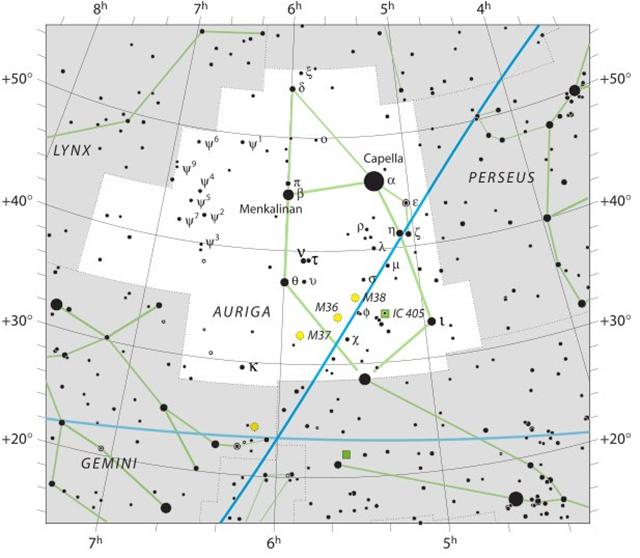 |
|
Dec 3 |
4 |
5 |
6 (340) |
|
 |
 |
 |
 |
|
o te henua |
kua
hakaturou |
koia ra
e
hakaturou e |
kua oho mai i te maro |
|
Ê, yes. E ... é
disjunct vocative marker. E vovo é! Girl!
E te matu'a é! Father! (Vanaga)
Turou. Mgv.: a great sacriledge or
blasphemy. Ta.: turou, a curse, to blaspheme.
Churchill. |
|
Bb4-6
→ 240 |
Bb4-7 (128, 549) |
Bb4-8 → 320 |
Bb4-9
→ 360 |
|
ALMAAZ (The Male Goat) =
ε
Aurigae
(74.7),
HAEDUS I =
ζ
Aurigae
(74.8) |
HAEDUS II = η Aurigae
(75.9) |
5h (*76.1)
ε
Leporis (76.0),
CURSA (Footstool) =
β
Eridani (76.4),
λ
Eridani (76.7)
*35.0 = *76.4 - *41.4 |
μ Aurigae, μ Leporis (77.6) |
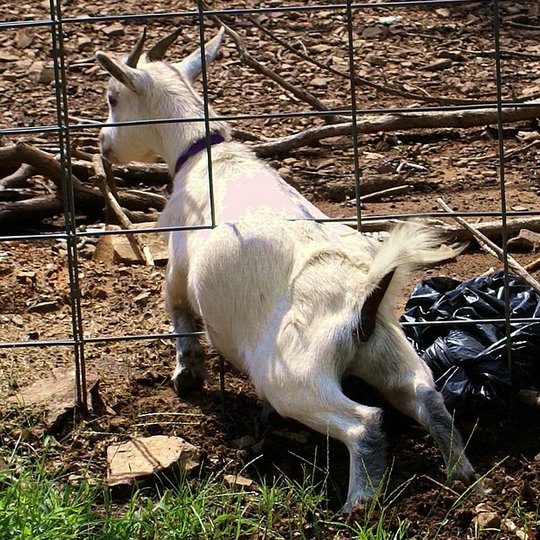 |
|
Dec 7 |
8 (342 → 132 + 210) |
9 (343 = 7 * 7 * 7) |
10 (*264) |
|
 |
 |
 |
 |
|
i te maitaki |
e tagata - huri hatu |
to ihe |
ko te tagata kua kai |
|
Huri. 1. To turn
(vt.), to overthrow, to knock down:
huri moai, the overthrowing of the statues from
their ahus during the period of decadence on
the island. 2. To pour a liquid from a
container: ka huri mai te vai, pour me some
water. 3. To end a lament, a mourning: he
huri i te tagi, ina ekó tagi hakaou, with this
the mourning (for the deceased) is over, there shall
be no more crying. 4. New shoot of banana:
huri maîka. Vanaga. 1. Stem. P Mgv.: huri,
a banana shoot. Mq.: hui, shoot, scion. 2. To
turn over, to be turned over onto another side, to
bend, to lean, to warp; huri ke, to change,
to decant; tae huri ke, invariable; huri
ke tahaga no mai, to change as the wind; tae
huri, immovable; e ko huri ke,
infallible; huhuri, rolling; hakahuri,
to turn over; hakahuri ke, to divine. P Pau.:
huri, to turn. Mgv.: huri, uri,
to turn on one side, to roll, to turn upside down,
to reverse. Mq.: hui, to turn, to reverse. 3.
To throw, to shoot. 4. To water, to wet. 5. To
hollow out. Hurihuri: 1. Wrath, anger;
kokoma hurihuri, animosity, spite, wrath, fury,
hate, enmity, irritable, quick tempered, to feel
offended, to resent, to pester; kokoma hurihuri
ke, to be in a rage. 2. (huri 4)
hurihuri titi, to fill up. 3. To polish. 4. (uriuri).
Hurikea, to transfigure, to transform.
Churchill. Mq. huri, resemblance. Sa.:
foliga, to resemble. Churchill.
Hati
1. To break (v.t., v.i.); figuratively: he hati
te pou oka, to die, of a hopu manu in the
exercise of his office (en route from Motu Nui
to Orongo). 2. Closing word of certain songs.
Vanaga. Hahati. 1. To break (see hati).
2. Roughly treated, broken (from physical exertion:
ku hahati á te hakari) 3. To take to the sea:
he hahati te vaka. Vanaga. Ha(ha)ti.
To strike, to break, to peel off bark; slip,
cutting, breaking, flow, wave (aati, ati,
hahati); tai hati, breakers, surf;
tumu hatihati, weak in the legs; hakahati,
to persuade; hatipu, slate. P Pau.: fati,
to break. Mgv.: ati, hati, to break,
to smash. Mq.: fati, hati, id. Ta.:
fati, to rupture, to break, to conquer.
Churchill.
...
Ecclesiastically, the equinox is reckoned to be on
21 March (even though the equinox occurs,
astronomically speaking, on 20 March [*364] in most
years) ...
Hatu. 1. Clod of earth;
cultivated land; arable land (oone hatu). 2.
Compact mass of other substances: hatu matá,
piece of obsidian. 3. Figuratively: manava hatu,
said of persons who, in adversity, stay composed and
in control of their behaviour and feelings. 4. To
advise, to command. He hatu i te vanaga rivariva
ki te kio o poki ki ruga ki te opata, they gave
the refugees the good advice not to climb the
precipice; he hatu i te vanaga rakerake, to
give bad advice. 5. To collude, to unite for a
purpose, to concur. Mo hatu o te tia o te nua,
to agree on the price of a nua cape. 6.
Result, favourable outcome of an enterprise. He
ká i te umu mo te hatu o te aga, to light the
earth oven for the successful outcome of an
enterprise. Vanaga. 1. Haatu, hahatu,
mahatu. To fold, to double, to plait, to
braid; noho hatu, to sit crosslegged; hoe
hatu, clasp knife; hatuhatu, to deform.
2. To recommend. Churchill. In the Polynesian
dialects proper, we find Patu and
Patu-patu, 'stone', in New Zealand; Fatu
in Tahiti and Marquesas signifying 'Lord', 'Master',
also 'Stone'; Haku in the Hawaiian means
'Lord', 'Master', while with the intensitive prefix
Po it becomes Pohaku, 'a stone'.
Fornander.
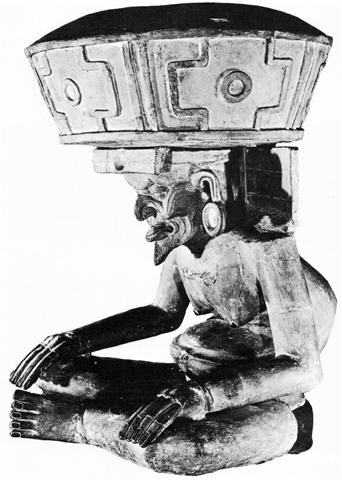 |
|
Bb4-10 |
Bb4-11 (132) |
Bb4-12 (554) |
Bb4-13 → 14 * 29½ |
|
ĸ Leporis (78.0),
RIGEL (Foot) =
β
Orionis
(78.1),
Flaming Star = IC405
(78.2),
CAPELLA =
α
Aurigae (78.4),
ο
Columbae,
τ
Orionis (78.8)
*37.0 = *78.4 - *41.4
THUBAN (α Draconis) |
λ Aurigae (79.0), λ Leporis (79.6), ρ Aurigae (79.7)
ARCTURUS (α Bootis) |
Shur-narkabti-sha-iltanu-5
(Star in the Bull towards the north)
σ
Aurigae (80.4), BELLATRIX (Female Warrior) =
γ
Orionis, SAIF AL JABBAR (Sword of the Giant) =
η
Orionis
(80.7),
ELNATH (The Butting One) =
β
Tauri =
γ
Aurigae
(80.9)
*39.0 = *80.4 - *41.4 |
ψ
Orionis (81.1),
NIHAL (Thirst-slaking Camels) =
β
Leporis
(81.7) |
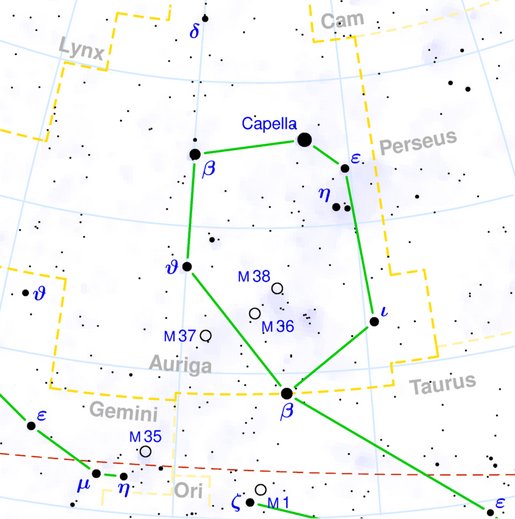 |
|
Dec 11 (345) |
12 (*266) |
Lucia |
14 (348 = 12 * 29) |
15 |
|
 |
 |
 |
 |
 |
|
ki to vae oho |
ma te tara huki |
a rere te manu |
ki to vaha kai |
ma te hoko huki - kua rere te
manu |
|
Va'e: Foot, leg; te va'e
mata'u, te va'e maúi, right foot, left foot. Va'e
ruga, va'e raro, quick and light, without detour
(lit.: foot up, foot down). Ka-oho koe ki a nua era
va'e ruga va'e raro, ina ekó hipa-hipa, hurry
straight to your mother, do not make any detours.
Va'e pau, misshapen foot, clubfoot. Vae, to
choose. Vaega, middle, centre; i vaega o,
in the middle of. Vanaga. 1. Foot, paw, leg, limb;
vae no roto, drawers; karikari vae, ankle. P
Pau.: vaevae, foot, leg. Mgv.: vaevae, id.
Mq.: vae, id. Ta.: vaevae, avae,
id. 2. Pupil. 3. To choose, elect, prefer, promote,
vote; vavae, to destine, to choose; vaea (vae
2), pupil. Vaeahatu (vae 1 - ahatu):
moe vaeahatu, to sleep sprawling with legs
extended. Vaega, center, middle, within, half;
o vaega, younger; ki vaega, among, between,
intermediate. P Pau.: vaega, the middle. Mgv.:
vaega, center, middle. Mq.: vaena, vavena,
vaveha, id. Ta.: vaehaa, half.
Vaehakaroa (vae 1 - roa): moe
vaehakaroa, to sleep with legs stretched out.
Vaehau (vae 1 - hau 3), pantaloons,
trousers. Vaeherehere (vae 1 - here
1), to attach by the paw. Vaerere (vae 1 -
rere 1), to run. Churchill. Ta.: 1. Timbers of a
boat. Ha.: wae, knees, side timbers of a boat. 2.
To share out. Sa.: vae, to divide, to share. Ma.:
wawae, to divide. Churchill.
Hoko. 1. To jump; to
rock or swing in rhythm with the chants in
festivals, as was the ancient custom; an ancient
dance. He to'o mai e te hoa manu i te mamari ki toona rima, he ma'u,
he hoko, the 'bird master' receives the egg in his
hand and carries it, dancing. 2. Number prefix: 'in a
group of...': hokotahi,
alone; hokorua, in a group of two (also companion, e
hakarere te kai mo toou hokorua, leave some food for
my companion); hakatoru, in a group of three,
etc.; hokohía, in a group of how many? Hokohía
ana oho koe ki te rano? With how many people will
you go to the volcano? Vanaga. 1. To traffic, to trade,
to buy, to ransom (hoò); hoòa te kaiga, to
buy land. 2. To sport, to play. Churchill. Move the body
to and fro with the rythm of a song. Barthel.
Huki. 1.
Pole attached to the poop from which the
fishing-net is suspended: huki kupega. 2. Digging
stick. 3. To set vertically, to stand
(vt.). 4. Huki á te mahina, said of the new moon
when both its horns have become visible. Vanaga. 1. To
post up, to publish. 2. To cut the throat (uki).
Mq.: Small sticks which close up the ridge of a house.
Ha.: hui, the small uniting sticks in a thatched
house. Churchill. Standing upright. Barthel. M. Spit
for roasting. Te Huki, a constellation. Makemson.
Hukihuki. 1. Colic. 2. To transpierce, a
pricking. 3. To sink to the bottom. Churchill. |
|
Bb4-14 → Bharani |
Bb4-15 (136) |
Bb4-16 |
Bb4-17 |
Bb4-18 (560) |
|
KHUFU
MINTAKA (Belt) = δ
Orionis,
υ Orionis (82.4),
χ Aurigae (82.5), ε Columbae (82.6)
*41.0 = *82.4 - *41.4
→ 41 Arietis (Bharani) |
KHAFRE
Al Hak'ah-3 (Brand)
/
Mrigashīrsha-5 (Stag's Head)
/
Turtle Head-20 (Monkey)
/
Mas-tab-ba-tur-tur (Little
Twins)
ARNEB =
α
Leporis, CRAB NEBULA = M1 Tauri
(83.0,
φ¹
Orionis (83.1),
HEKA =
λ
Orionis,
ORION NEBULA = M42
(83.2),
φ²
Orionis (83.6),
ALNILAM (String of Pearls) =
ε
Orionis
(83.7) |
MENKAURE
Three Stars-21 (Gibbon)
/
Shur-narkabti-sha-shūtū-6
(Star in the Bull towards the south) /
ANA-IVA-9 (Pillar of exit)
HEAVENLY GATE =
ζ
Tauri,
ν
Columbae (84.0),
ω
Orionis (84.2),
ALNITAK (Girdle) =
ζ
Orionis,
PHAKT (Phaet) =
α
Columbae
(84.7) |
ο Aurigae (85.8), γ Leporis (85.9)
YANG MUN (α Lupi) |
μ Columbae (86.1), Saiph (86.5), ζ μ Columbae,
SAIPH (Sword) = κ Orionis
(86.5), τ Aurigae, ζ Leporis (86.6) |
|
... Menkaure was allegedly a much more
benevolent Pharaoh than his predecessors. According
to legends related by Herodotus, he wrote the
following: This Prince (Mycerinus)
disapproved of the conduct of his father, reopened
the temples and allowed the people, who were ground
down to the lowest point of misery, to return to
their occupations and to resume the practice of
sacrifice. His justice in the decision of causes was
beyond that of all the former kings. The Egyptians
praise him in this respect more highly than any
other monarchs, declaring that he not only gave his
judgements with fairness, but also, when anyone was
dissatisfied with his sentence, made compensation to
him out of his own purse and thus pacified his
anger. The Gods however ordained that Egypt should
suffer tyrannical rulers for a hundred and fifty
years according to this legend. Herodotus goes on:
An oracle reached him from the town of Buto,
which said 'six years only shalt thou live upon this
earth, and in the seventh thou shalt end thy days'.
Mycerinus, indignant, sent an angry message
to the oracle, reproaching the god with his
injustice - 'My father and uncle,' he said 'though
they shut up the temples, took no thought of the
gods and destroyed multitudes of men, nevertheless
enjoyed a long life; I, who am pious, am to die
soon!' There came in reply a second message from the
oracle - 'for this very reason is thy life brought
so quickly to a close - thou hast not done as it
behoved thee. Egypt was fated to suffer affliction
one hundred and fifty years - the two kings who
preceded thee upon the throne understood this - thou
hast not understood it'. Mycerinus, when this
answer reached him, perceiving that his doom was
fixed, had lamps prepared, which he lighted every
day at eventime, and feasted and enjoyed himself
unceasingly both day and night, moving about in the
marsh-country and the woods, and visiting all the
places he heard were agreeable sojourns. His wish
was to prove the oracle false, by turning night into
days and so living twelve years in the space of six
...
.jpg) |
|
Dec 16 (350) |
17 |
18 |
19 |
20 (12 * 29½) |
|
 |
 |
 |
 |
 |
|
vae oho |
mai tae atu ki te tagata puo
pouo - koia kua mau i te maro |
e tagata haati era - ki te kava
e kua huri ko to hatu |
e tagata mau i te maro e |
kua vere ki te henua |
|
... Am häufigsten
tritt das Zeichen 200 [GD15, tagata] auf. Es gibt
eine stehende Menschenfigur wieder, deren Enface-Kopf
mit dreieckig oder schleifenförmig stilisierten Ohren
dargestellt wird. Diese Gestalt mit dem Lautwert
'tangata' ist der Gundtyp fûr den Mann und für
den Menschen schlechthin. Einzeln und zu mehreren,
vereint mit geometrischen und zoomorphen Formen, ist das
Zeichen auf allen Tafeln in zahlreichen Kombinationen
belegt.
I think Barthel is confused here,
because although what is illustrated indeed probably is
the figure of a man, that does not necessarily imply
that the meaning is 'a man' or 'mankind'. As we have
seen the sun himself was depicted by GD15 at noon. Often
gods are imagined as looking as we do, but that may be
because artists must use some familiar form to get their
expressions understood. Artists certainly are aware of
this fact, but the rest of the people tend to be
deceived into thinking that what they see really is a
picture of god. From this we can understand that in some
cultures it is forbidden to make pictures of god.
As to 'schleifenförmig' (a word the
meaning of which I had to check in my dictionary) the
English language has two synonyms: 'in form of a loop'
and 'in form of an eye'. It is interesting to find that
loop-holes and eyes are so close together in our minds.
The Polynesians associated 'eye' with 'sun' and
therefore put wooden plugs into their earlobes.
Das begriffliche
Gegenstück bildet der Zeichentyp 530 [see below]. Bei
ihm wird nur das eine Ohr wiedergegeben, während fûr das
andere drei kurze Parallelstriche eintreten.
Metoro
erklärt mehrere Vorkommen auf der Tafel 'Tahua'
mit 'ahine poopouo', und Jaussen übersetzt in
seiner Liste 'vie poko pouo' als 'femme coiffée'.
Eine Ähnlichkeit mit dem geflochtenen Frauenhut
ist jedoch nicht zu entdecken. Stattdessen dürften sich
die graphischen Besonderheiten auf eine bestimmte über
das Ohr reichende Haartracht beziehen. Tatsächlich
trugen auf der Osterinsel die Frauen tief in den Nacken
fallendes Haar. Der Haarschopf scheint demnach den
zugehörigen Körper als weiblich charakterisiert zu
haben."
|
|
Bb4-19 (140) |
Bb4-20 (141) |
Bb4-21 |
Bb4-22 (564 = 3 * 188) |
Bb4-23 (12 * 12) |
|
υ Aurigae (87.1), ν Aurigae (87.2),
WEZN (Weight) = β Columbae,
δ Leporis (87.7),
TZE (Son) = λ Columbae
(87.9) |
Ardra-6 (The Moist One)
/
ANA-VARU-8 (Pillar to sit by)
χ¹
Orionis,
ξ
Aurigae (88.1),
BETELGEUZE =
α
Orionis
(88.3),
ξ
Columbae (88.5),
σ
Columbae (88.7)
ZUBEN ELGENUBI (α Librae) |
η
Leporis (89.0),
PRAJA-PĀTI (Lord of Created Beings) =
δ
Aurigae,
MENKALINAN (Shoulder of the Rein-holder) =
β
Aurigae, MAHASHIM (Wrist) =
θ
Aurigae,
and
γ
Columbae (89.3),
π
Aurigae (89.4),
η
Columbae (89.7)
*48.0 = *89.4 - *41.4 |
μ Orionis (90.3), χ² Orionis (90.5) |
6h (91.3)
ν
Orionis (91.4),
θ
Columbae (91.5),
π
Columbae (91.6)
*50.0 = *91.4 - *41.4
→ Splashing Water |
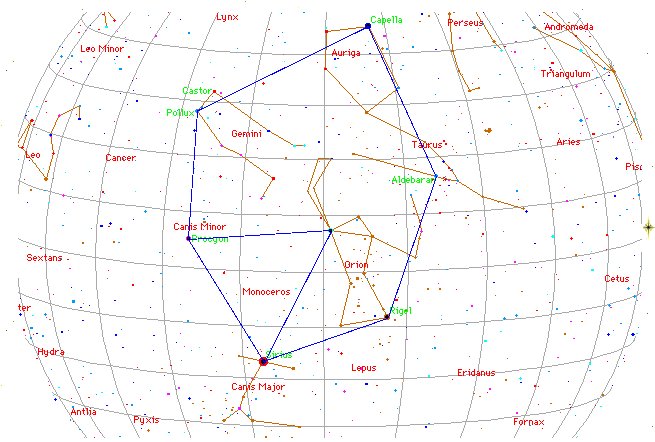 |
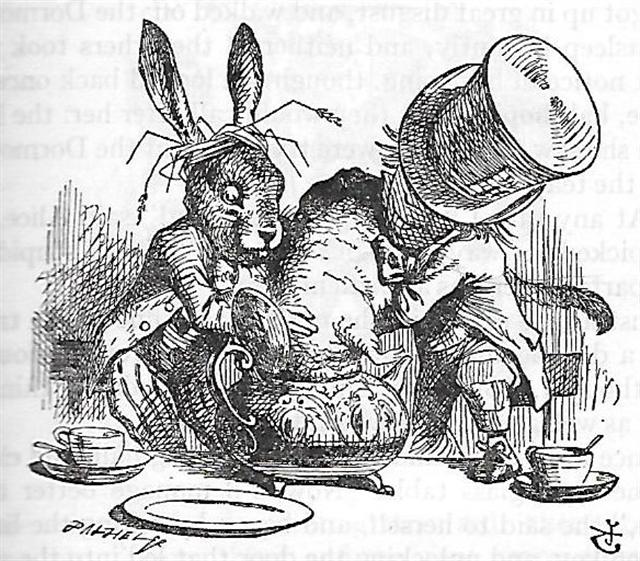
|